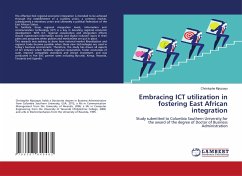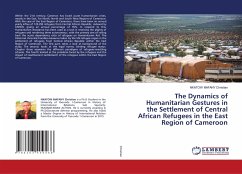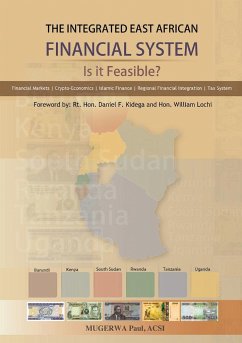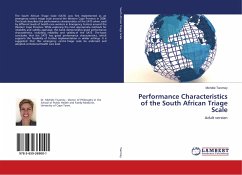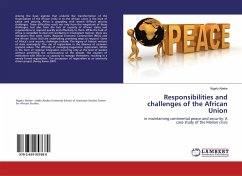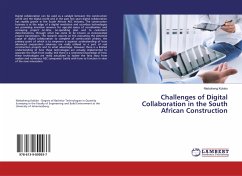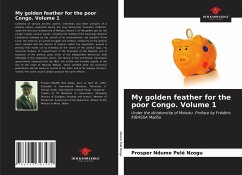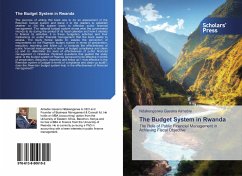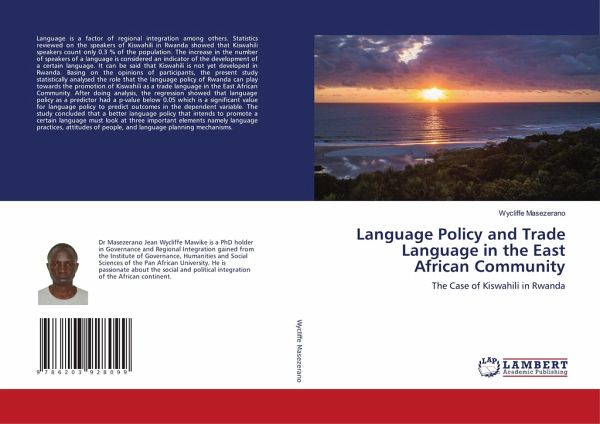
Language Policy and Trade Language in the East African Community
The Case of Kiswahili in Rwanda
Versandkostenfrei!
Versandfertig in 6-10 Tagen
55,99 €
inkl. MwSt.

PAYBACK Punkte
28 °P sammeln!
Language is a factor of regional integration among others. Statistics reviewed on the speakers of Kiswahili in Rwanda showed that Kiswahili speakers count only 0.3 % of the population. The increase in the number of speakers of a language is considered an indicator of the development of a certain language. It can be said that Kiswahili is not yet developed in Rwanda. Basing on the opinions of participants, the present study statistically analysed the role that the language policy of Rwanda can play towards the promotion of Kiswahili as a trade language in the East African Community. After doing...
Language is a factor of regional integration among others. Statistics reviewed on the speakers of Kiswahili in Rwanda showed that Kiswahili speakers count only 0.3 % of the population. The increase in the number of speakers of a language is considered an indicator of the development of a certain language. It can be said that Kiswahili is not yet developed in Rwanda. Basing on the opinions of participants, the present study statistically analysed the role that the language policy of Rwanda can play towards the promotion of Kiswahili as a trade language in the East African Community. After doing analysis, the regression showed that language policy as a predictor had a p-value below 0.05 which is a significant value for language policy to predict outcomes in the dependent variable. The study concluded that a better language policy that intends to promote a certain language must look at three important elements namely language practices, attitudes of people, and language planning mechanisms.



